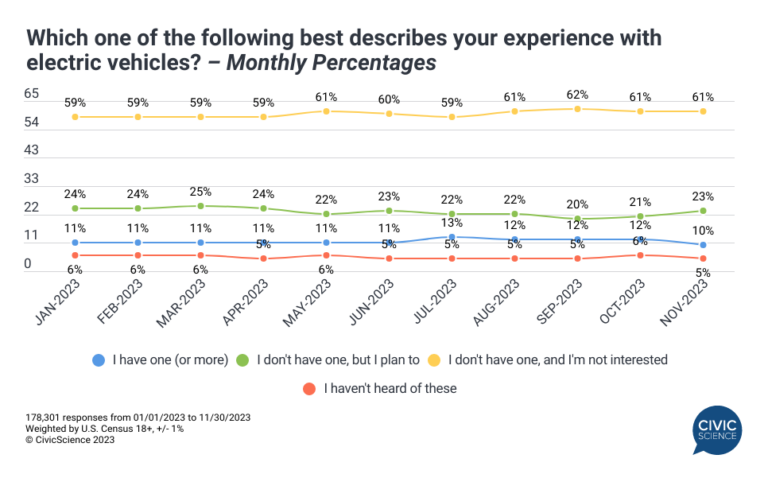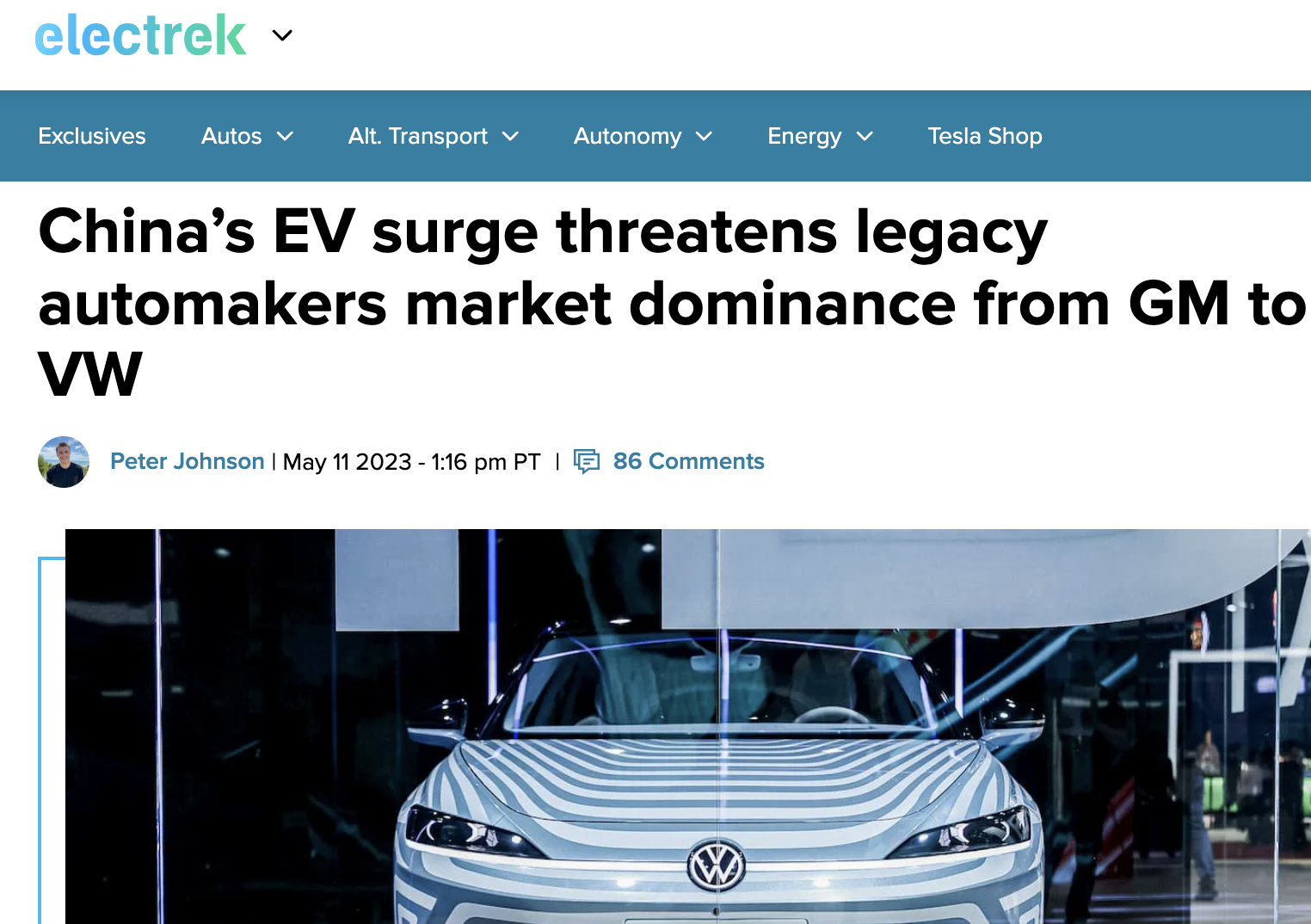Auto Dealerships Ramp Up Pressure Against Electric Vehicle Regulations

Table of Contents
Despite ambitious government targets for electric vehicle (EV) adoption, a growing wave of resistance is brewing from a surprising source: auto dealerships. Auto dealerships across the nation are intensifying their lobbying efforts against stricter electric vehicle regulations, arguing that these policies threaten their business models and profitability. These concerns stem from significant financial challenges, logistical hurdles, and a perceived lack of consumer readiness for widespread EV adoption.
<h2>Financial Concerns of Dealerships Facing EV Transition</h2>
The transition to an electric vehicle-dominated market presents substantial financial headwinds for traditional auto dealerships. The core business model, long reliant on high-margin internal combustion engine (ICE) vehicle sales and lucrative service departments, is under threat.
<h3>Reduced Profit Margins on EV Sales</h3>
Electric vehicles inherently offer lower profit margins compared to their gasoline-powered counterparts. This is primarily due to their simpler mechanical design and reduced maintenance needs.
- Fewer parts needed, leading to less revenue from service departments: EVs have significantly fewer moving parts than ICE vehicles, resulting in less frequent repairs and less revenue for service departments, a historically significant profit center for dealerships.
- Increased competition from direct-to-consumer EV brands cutting out dealerships: Tesla's direct-to-consumer model, and similar strategies from other emerging EV makers, bypasses the traditional dealership network, further eroding potential revenue streams.
- Higher upfront investment in specialized EV servicing equipment: Dealerships must invest heavily in new tools, training, and equipment to service EVs, adding considerable upfront costs.
<h3>Investment in Infrastructure and Training</h3>
Adapting to the EV market requires substantial capital investment beyond specialized tools. Dealerships face considerable expenses in upgrading their infrastructure and retraining their workforce.
- Cost of installing EV charging stations: Installing fast-charging stations requires significant upfront investment and ongoing operational costs.
- Employee retraining programs on EV maintenance and repair: Mechanics need specialized training to diagnose and repair EV components, representing a considerable expense for dealerships.
- Upgrading existing service bays to accommodate EVs: Service bays may need modification to handle the weight and specific service requirements of EVs, including high-voltage safety precautions.
<h2>Logistical Challenges in Transitioning to EVs</h2>
Beyond the financial hurdles, auto dealerships face numerous logistical challenges in adapting to the changing automotive landscape. These challenges primarily involve inventory management, supply chain issues, and addressing consumer concerns.
<h3>Inventory Management and Supply Chain Issues</h3>
Managing EV inventory presents unique challenges compared to ICE vehicles. Supply chain disruptions and fluctuating demand make accurate forecasting difficult.
- Uncertainty about future EV demand: Predicting future EV sales is challenging given the rapidly evolving technology and market dynamics.
- Difficulty in forecasting parts needed for EV service: The relatively new technology of EVs means that parts availability and demand forecasting are still evolving.
- Dependence on battery supply chains that are vulnerable to disruption: The global supply chain for EV batteries is complex and prone to disruptions, impacting inventory and service capabilities.
<h3>Consumer Concerns and Perceptions</h3>
Dealerships acknowledge that consumer hesitancy towards EVs remains a significant hurdle to widespread adoption. Addressing consumer concerns is crucial for successful EV sales.
- Lack of public charging infrastructure in many areas: Range anxiety remains a primary concern for potential EV buyers, particularly in areas with limited public charging infrastructure.
- Concerns about battery life and replacement costs: The longevity and replacement cost of EV batteries are significant concerns for many consumers.
- Higher upfront cost of EVs compared to comparable ICE vehicles: The initial purchase price of EVs often remains higher than comparable ICE vehicles, deterring some potential buyers.
<h2>Lobbying Efforts and Political Influence</h2>
Facing significant financial and logistical challenges, auto dealerships are actively engaging in lobbying efforts to influence EV regulations.
<h3>Strategies Used by Dealerships to Influence Policy</h3>
Dealerships are employing various strategies to influence lawmakers and policymakers.
- Hiring lobbyists to influence legislation: Dealerships and their associations are actively hiring lobbyists to advocate for policies that mitigate the challenges of the EV transition.
- Making campaign contributions to politicians: Political campaign contributions are a common tactic used to influence lawmakers' stances on EV regulations.
- Launching public awareness campaigns to shape public opinion: Dealerships are actively engaging in public relations campaigns to shape public perception regarding the challenges of a rapid EV transition.
<h3>The Role of Industry Associations</h3>
National and regional auto dealer associations play a crucial role in coordinating lobbying efforts and advocacy.
- Unified messaging and lobbying efforts: Industry associations provide a unified voice and coordinate lobbying efforts on behalf of their members.
- Providing resources to individual dealerships to participate in advocacy: Associations provide support and resources to individual dealerships to participate effectively in the policy-making process.
- Supporting research and studies that highlight the economic challenges of rapid EV transition: Associations fund research to support their arguments and demonstrate the economic impact of proposed regulations.
<h2>Conclusion: The Future of Electric Vehicles and the Role of Dealerships</h2>
The transition to electric vehicles presents significant financial and logistical challenges for auto dealerships. Reduced profit margins on EV sales, substantial investments in infrastructure and training, and concerns about consumer adoption are driving intense lobbying efforts against stricter EV regulations. The strategies employed by dealerships, including direct lobbying and public awareness campaigns, highlight the considerable stakes involved in this rapidly evolving sector. Understanding the perspectives of all stakeholders, including auto dealerships, is crucial for developing effective policies that support both the transition to electric vehicles and the long-term viability of the automotive industry. Stay informed about the evolving landscape of electric vehicle regulations and the continued pressure from auto dealerships. Understanding the perspectives of all stakeholders is crucial for shaping a sustainable and equitable future for the automotive industry. The debate over electric vehicle regulations and the auto dealership industry's response will continue to shape the future of transportation.

Featured Posts
-
 Saudia Pilihan Tepat Untuk Penerbangan Bali Jeddah
May 28, 2025
Saudia Pilihan Tepat Untuk Penerbangan Bali Jeddah
May 28, 2025 -
 Hollywood Shut Down Double Strike Impacts Film And Television Production
May 28, 2025
Hollywood Shut Down Double Strike Impacts Film And Television Production
May 28, 2025 -
 Analyzing The Challenges Why Western Automakers Struggle In The Chinese Market
May 28, 2025
Analyzing The Challenges Why Western Automakers Struggle In The Chinese Market
May 28, 2025 -
 Charlie Rangel Dead At 94 Remembering A New York Giant
May 28, 2025
Charlie Rangel Dead At 94 Remembering A New York Giant
May 28, 2025 -
 Meilleur Prix Galaxy S25 128 Go Seulement 814 22 E
May 28, 2025
Meilleur Prix Galaxy S25 128 Go Seulement 814 22 E
May 28, 2025
Latest Posts
-
 Up To 30 Off Enjoy A Lavish Hotel Stay This Spring
May 31, 2025
Up To 30 Off Enjoy A Lavish Hotel Stay This Spring
May 31, 2025 -
 Book Now And Save 30 Off Lavish Spring Hotel Stays
May 31, 2025
Book Now And Save 30 Off Lavish Spring Hotel Stays
May 31, 2025 -
 The Reality Of Ai Navigating The Challenges Of Responsible Ai Development
May 31, 2025
The Reality Of Ai Navigating The Challenges Of Responsible Ai Development
May 31, 2025 -
 Luxury Hotel Spring Break 30 Off Your Stay
May 31, 2025
Luxury Hotel Spring Break 30 Off Your Stay
May 31, 2025 -
 Why Ai Doesnt Learn And How This Impacts Responsible Ai Practices
May 31, 2025
Why Ai Doesnt Learn And How This Impacts Responsible Ai Practices
May 31, 2025
